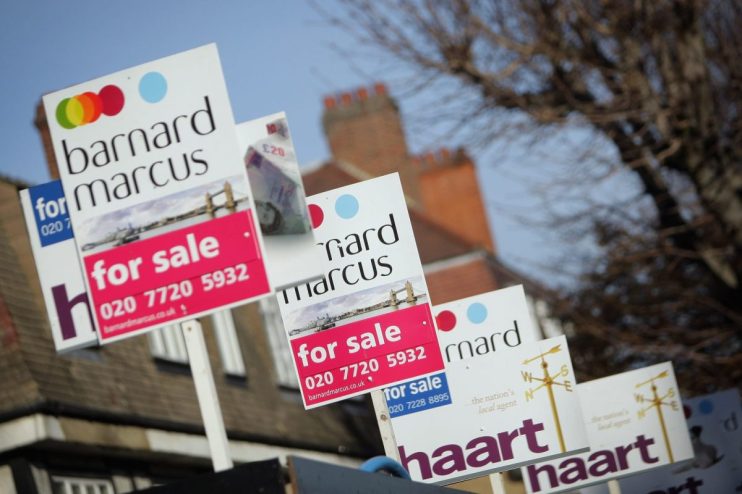UK house prices hit new highs with typical home topping £250k

House prices have hit record highs, with the average property hiking more than £30k since the pandemic struck.
Nationwide’s House Price Index was published against a backdrop of the Bank of England being anticipated to raise interest rates in response to rising inflation.
The typical UK home has topped a quarter of a million pounds for the first time.
The lender has reported that the price of the average house rose by 0.7 per cent in October, up from 0.2 per cent in September.
The annual growth rate remained elevated at 9.9 per cent in October, slightly lower than 10 per cent in September.
Demand had remained strong, despite the end of the stamp duty holiday at the end of September.
There were 72,645 mortgage applications in September, more than 10 per cent above the monthly average recorded in 2019.
“Combined with a lack of homes on the market, this helps to explain why price growth has remained robust,” Robert Gardner, Nationwide’s chief economist, said.
The outlook was “extremely uncertain,” as a sharp increase in the cost of living had slowed consumer confidence, Gardner added.
“Even if wider economic conditions continue to improve, rising interest rates may exert a cooling influence on the market, though the impact on existing borrowers is likely to be modest,” he added.
The economist said a 0.4 percentage point interest rate increase in rates to 0.5 per cent “is likely to have a modest impact on most borrowers who are on variable rates”.
“For example, on the average mortgage, an interest rate increase of 0.4 per cent would raise monthly payments by £28 to £625 (or around £335 extra per year), though a rise of bank rate to 1 per cent would see typical payments go up by a more substantial £64 to £660 (more than £760 per year approximately).”
He added: “It’s important to note that a small proportion of households already have a relatively high debt service burden.
Jonathan Hopper, CEO of Garrington Property Finders said the market still showed no signs of slowing:
“A boom that many predicted would burn itself out is still in full flow despite the end of the stamp duty holiday.
“While on the front line we’re seeing some asking prices being reduced as the market begins to normalise, monthly price growth in October actually accelerated, doing the exact opposite of what might have been expected after the end of the Chancellor’s tax incentives.
He added: “The white heat of price inflation seen for much of this year is still creating sleepless nights in Threadneedle Street.”